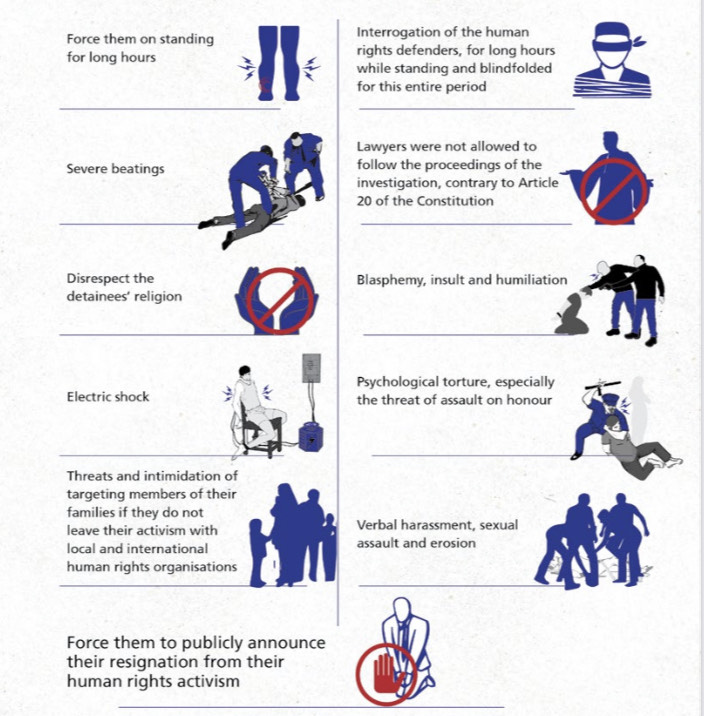
All member states of the UN are obliged to sign treaty bodies that bind them to international standards and laws. Bahrain, as of June 2020, have ratified nine of these in relation to human rights. These are:
- International Convention on the Elimination of All Forms of Racial Discrimination – March 1990 (CERD)
- Covenant on Economic, Social and Cultural Rights – September 2007 (CESCR)
- International Covenant on Civil and Political Rights – September 2006 (CCPR)
- Convention on the Elimination of All Forms of Discrimination against Women – June 2002 (CEDAW)
- Convention against Torture and Other Cruel, Inhuman or Degrading Treatment or Punishment – March 1998 (CAT)
- Convention on the Rights of the Child – February 1992 (CRC)
- Optional Protocol to the Convention on the Rights of the Child on the involvement of children in armed conflict – September 2004 (CRC-OP-AC)
- Optional Protocol to the Convention on the Rights of the Child on the sale of children, child prostitution and child pornography (CRC-OP-SC)
- Convention on the Rights of Persons with Disabilities – September 2011 (CRPD)
However, despite these ratifications, the human rights record of Bahrain continues to deteriorate. Since the 2011 Arab Spring revolts, the authorities have increased the usage of restrictive laws and of unacceptable methods of punishment and, in turn, have limited access to the acceptable quality of human rights outlined by the UN.
Currently there are three main mechanisms in place which enable the UN to monitor and implement international human rights standards. These are:
- Special procedures communications and reports = human rights experts, known as Special Rapporteurs, are assigned a mandate and then advise and report on this in relation to a certain theme or country. Reports are sent between the UN and the country to investigate specific human rights cases. Throughout, more information on the case is given, recommendations are suggested and the international laws that have been broken are stated, allowing the nation to add any details needed and justify the claims if need be. These are often paired with country visits to allow closer investigations.
- Universal Periodic Review (UPR) = a review of all human rights related information from every member of the UN. This is state driven and monitors the improvements made by each country in terms of human rights issues. Reports are published which include recommendations given by each nation and the progress made in terms of their human rights record.
- Treaty bodies = these are formed by the UN Human Rights Council (UNHRC) and include committees of experts in the area. All nations have to ratify at least one. These lay out the international standards expected from each UN member.
Despite the usage of these mechanisms, the Bahraini government has continued to subject its citizens to many human rights abuses. The abuses seen most frequently, treaty bodies broken and the recommendations and responses given to these are analysed below in section one. Section two will go on to examine some of the issues with the implementation of international standards and state compliance.
Click here to read the full report


 العربية
العربية Français
Français Deutsch
Deutsch